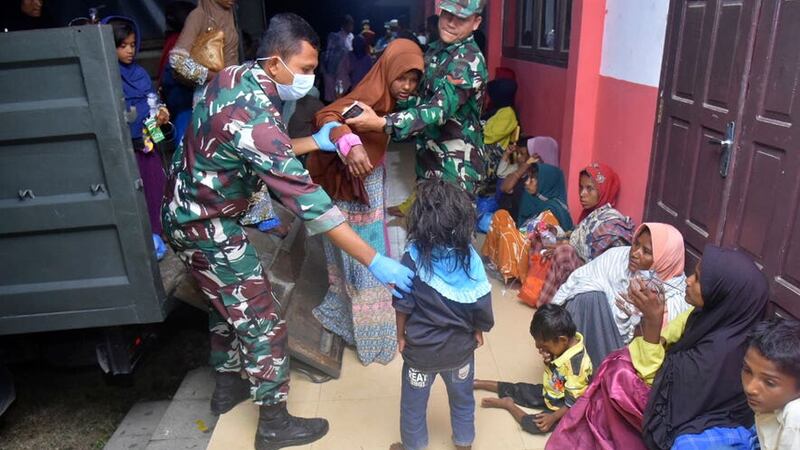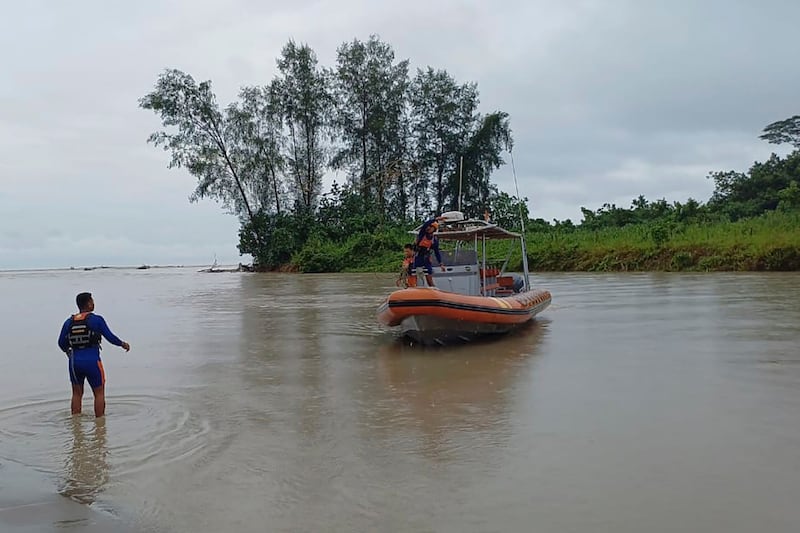At least 26 Rohingya Muslims died in dire conditions during a month at open sea while making a dangerous voyage that brought scores of others to safety in Indonesia, a UN agency has said.
Exhausted women and children were among 185 people who disembarked from a wooden boat on Monday in a coastal village in Aceh’s Pidie district, authorities said.
A distressing video circulated widely on social media showed the exhausted and emaciated Rohingya, many crying for help.
“They are very weak because of dehydration and exhaustion after weeks at sea,” said local police chief Fauzi, who goes by a single name.
The UN High Commissioner for Refugees (UNHCR) said that survivors told the agency that 26 people had died during the long journey.
One of the refugees, who identified himself as Rosyid, told The Associated Press that they had left the refugee camp in Bangladesh at the end of November and drifted on the open sea.
He said at least “20 of us died aboard due to high waves and sick, and their bodies were thrown into the sea”.
According to the UNHCR, more than 2,000 people are reported to have taken risky sea journeys in the Andaman Sea and the Bay of Bengal this year, and nearly 200 have reportedly died.
The UNHCR had also received unconfirmed reports of one additional boat carrying some 180 people who were still missing. All passengers were presumed dead.
“In the absence of an immediate, resourceful, and co-ordinated response by regional governments to help Rohingya refugees still aboard imperiled vessels, lives may be lost,” Amnesty International Indonesia executive director Usman Hamid said in an statement.
“This is unacceptable.”
Chris Lewa, the director of the Arakan Project, which works in support of Myanmar’s Rohingya, said the latest arrivals were among five groups of Rohingya who had left refugee camps in Cox’s Bazar district in Bangladesh by smaller boats to avoid detection by local coastguards before they were transferred onto five larger boats for their respective journeys.
More than one million Rohingya refugees have fled to Bangladesh from Myanmar over several decades, including about 740,000 who crossed the border starting in August 2017, when the Myanmar military launched its crackdown.
Myanmar’s security forces were accused of mass rapes, killings and torching thousands of homes, and international courts are reviewing charges of genocide against them.
“This year could be one of the deadliest in recent memory for Rohingya people making the dangerous journey by sea. They continue to risk it all because of harsh conditions in refugee camps in Bangladesh, where security and other living conditions have deteriorated, and the ever-worsening situation at home in Myanmar, which has been under military rule since a coup almost two years ago,” the Amnesty director said.
Malaysia has been a common destination for many of the refugees arriving by boat, but they also have been detained in the country. Engine troubles make others seek safety in Aceh province in Indonesia, on the way to Malaysia.
The UNHCR praised authorities and Indonesia’s local community who brought ashore more than 200 desperate Rohingya, many of whom were in need of urgent medical attention.
Indonesian fishermen and local authorities rescued and disembarked two groups, 58 on Sunday and 174 on Monday, said Ann Maymann, the UNHCR representative in Indonesia.
“We welcome this act of humanity by local communities and authorities in Indonesia,” Ms Maymann said.





